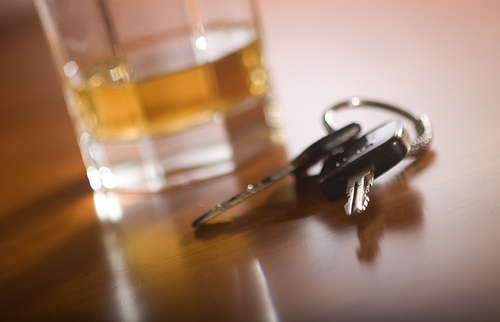What critical information can you provide to your DUI lawyer
 If you’re charged with driving under the influence (DUI) in Pennsylvania or driving while intoxicated (DWI) in New Jersey, a sound defense strategy is critical to a favorable outcome. A favorable outcome can of course include a not guilty verdict but keep in mind that this type of result isn’t always possible (and it doesn’t necessarily mean that your DUI lawyer didn’t do his job.) The severity of DUI or DWI is based on the degree of one’s intoxication so a defense victory isn’t always a complete not guilty (while obviously preferred).
If you’re charged with driving under the influence (DUI) in Pennsylvania or driving while intoxicated (DWI) in New Jersey, a sound defense strategy is critical to a favorable outcome. A favorable outcome can of course include a not guilty verdict but keep in mind that this type of result isn’t always possible (and it doesn’t necessarily mean that your DUI lawyer didn’t do his job.) The severity of DUI or DWI is based on the degree of one’s intoxication so a defense victory isn’t always a complete not guilty (while obviously preferred).
In Pennsylvania, for example a 1st time offender under 3802(a)(1) doesn’t face a driver’s license suspension provided that the DUI didn’t involve an accident. A conviction under 3802(c) (highest tier BAC greater than .159) faces 3 days in jail, a 12 month license suspension, an ignition interlock, along with substantially higher fines! Winning, therefore, doesn’t always mean no conviction, especially, if the prosecutor or district attorney has, what appears to be, a strong case against you.
The difference between a great result and a poor one, is often based on the information or evidence that your criminal defense lawyer collects prior to trial. This information isn’t always in the discovery and sometimes, you actually hope that it isn’t because you don’t want the prosecutor to use against you.
While the prosecution is obligated to provide the defense with all the information that it has on the case, it isn’t obligated to do the defense’s investigative work! Your lawyer needs ask you very specific questions to ensure that he has a complete picture about what occurred on the day or evening you were arrested for DUI; don’t just accept what the DA gives you as gospel! This critical information should include the following which may not be in discovery provided to the defense (it probably isn’t):
- Your height
- Your weight
- Last Meal
- Duration of drinking
- Number of drinks consumed (standard sized drink
- The type of drinks consumed (beer, wine, liquor)
- Time you left the bar, club, restaurant
- Time of accident (if it occurred)
- Time of arrest (it may be different than what police write down)
- Time of traffic stop (again, it could be different)
- Time of chemical test (blood test, breath test)
As you can see from this list, time is a critical part of a DUI defense because blood alcohol concentration or content (BAC). In addition to time, however, what you are drinking (size of the drinks) and what you consumed will influence the rate of alcohol absorption and its concentration. Your attorney can even roughly calculate your BAC with the Widmark formula based on the information that you provide to him. These answers are in addition to the results of the chemical test (blood or breath) that will be provided to your lawyer.
The results from those chemical tests are critical to prosecution’s case because more serious DUI charges require that district or prosecutor establish a specific BAC beyond a reasonable doubt. Issues such as the chain of custody of blood results, radio wave interference with the Intoxilyzer (Breathalyzer), the device’s maintenance records and the certification or qualifications of the person administering the test are all critical to your criminal defense
For more information on DUI defense in Pennsylvania or New Jersey, I encourage you to read the 2nd Edition of my book—5 Ways to Fight and Win Your Pennsylvania DUI Case
